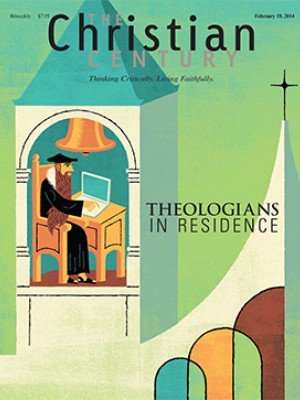Divorce rate high in conservative areas
Conservative Protestants residing in red states have high divorce rates, surveys have shown, but a newly published study finds that not-so-religious couples in their communities are splitting up nearly as fast.
According to researchers who took into account race, income and other factors, the marriage and fertility trends that are common among conservative Protestants—younger marriage, more kids, less higher education—affect all people in areas most populated by conservative Protestants, no matter their personal religious affiliation.
“Conservative Protestant community norms and the institutions they create seem to increase divorce risk,” researchers say in the study. For example, those who are struggling in their marriage may feel discouraged about finding help in communities where marriage is idealized or marital failure is viewed as shameful, the researchers suggest.
Read our latest issue or browse back issues.
“Generally, religion, religious belief and religious activities are thought to strengthen marriages,” said lead author Jennifer Glass, the Barbara Bush Professor of Liberal Arts at the University of Texas at Austin. But it appears that with the cessation of education combined with early marriage and early parenthood, “you’re set up for relationship conflict, financial stress and dissolution,” she said.
The study, titled “Red States, Blue States, and Divorce: Understanding the Impact of Conservative Protestantism on Regional Variation in Divorce Rates” in the American Journal of Sociology, analyzed county divorce statistics and information from a study of religious congregations, divorce statistics, information on the religious breakdown of local areas and a national survey.
Researchers considered why states with larger proportions of religious conservatives have higher divorce rates than states with lower proportions of religious conservatives. The study compared “conservative Protestants”—those who believe the Bible is without error—with mainline Protestants, Catholics, other faiths and those who aren’t affiliated with a religion.
County by county, for every 1 percent increase in the share of conservative Protestants compared with mainline Protestants, the divorce rate increased 0.02 percent, the study found. Glass, whose academic specialty is sociology, argued that community institutions in such areas might encourage early marriage, affecting divorce rates for everyone who lives there.
“Pharmacies might not give out emergency contraception. Schools might only teach abstinence education,” Glass added, according to an account of the study in the Los Angeles Times. On top of that, “if you live in a marriage market where everybody marries young, you postpone marriage at your own risk. The best catches . . . are going to go first.”
The findings are not as straightforward as saying “conservative Protestants are causing trouble for other people’s marriages,” said Chuck Stokes, a sociology professor at Samford University, who conducted a separate study on Americans who, on average, got married at a younger age.
In his own research, Stokes found that conservative Protestants who attend church regularly are significantly less likely to have gotten divorced than nonreligious peers.
“The pattern that pops out in this data is that when you look at those who attend church weekly, their divorce rates are the same as other high-attending Christians,” Stokes said. “Nominal Christians are probably getting the community norms but aren’t in a social structure to live the norms out.”
Mark Regnerus, one of Glass’s colleagues at the University of Texas, has stirred controversy with his research on gay parents and has been a proponent of earlier marriage, though he doesn’t condone teen marriage.
“The analyses revealed here point out the wisdom in waiting until you’re out of the most significant danger zone—the teens—and well into your twenties,” Regnerus said in an e-mail.
“What I can see in this study is the obvious shortcomings of a culture of ‘romantic individualism,’ one that’s toxic to marriage, rather than a warning to wait until you’re ‘older’ to marry.” —RNS/added sources
This article was edited Feb. 4, 2014.






